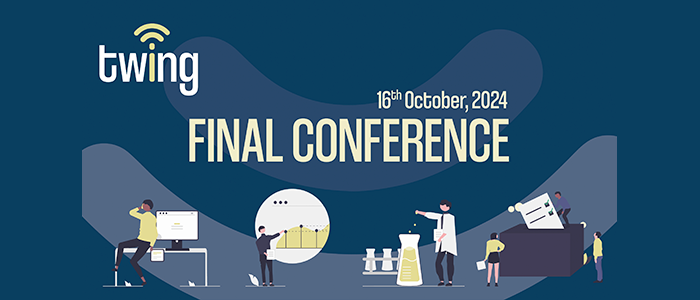Final conference of the TWING project
The final conference of the TWING project, led by Notus, took place on 16 October 2024 in Madrid, just before the official conclusion of the project at the end of October. This event gathered more than 40 participants from various sectors, including representatives of social partners, academics and European agencies from Austria, Estonia, Finland, Poland, Portugal and Spain. Its main objective was to review the results of the project and to explore the future of telework regulation through collective bargaining and social dialogue in Europe.
Opening of the event:
- Marc Caballero, coordinator of the TWING project, opened the event with a detailed introduction on the evolution and main results of the project, highlighting the relevance of these in the current European labour landscape.
- María Canal Fontcuberta, from the European Commission Representation in Spain, elaborated on the impact of TWING from an EU policy point of view, underlining the importance of the project in the context of the European debates on telework.
With this general framework established, the event continued with a series of round tables, addressing the central issues of telework regulation and delving into the specific results of the project in each participating country.
Round tables:
- Roundtable 1: Challenges in the regulation of telework in the EU
Facilitated by Jesús Cruces of the Fundación Primero de Mayo, this session explored the main challenges in the regulation of telework in different EU countries. Maria Caprile from Notus presented key regulatory issues, while Dr. Pablo Sanz de Miguel from the University of Zaragoza presented a comparative analysis based on the findings of the TWING project, which generated a lively Q&A with the audience.
- Panel 2: Results at national level
Moderated by Dr. Óscar Molina from the Autonomous University of Barcelona, this panel allowed project partners to share their specific findings at national level. Researchers from Austria, Estonia, Finland, Poland, Portugal and Spain discussed how existing legislation and institutional factors in each country influence the regulation of telework, highlighting topical issues such as flexibility, working time and the right to disconnect in the framework of collective bargaining.
- Roundtable 3: Challenges and opportunities for the social partners
Maurizio Curtarelli of the European Agency for Safety and Health at Work moderated a session bringing together representatives of employers and trade unions from Estonia, Finland, Poland, Portugal and Spain. The discussion revolved around crucial issues for telework, such as access, occupational safety and health conditions in remote working environments and opportunities for cooperation between employers and workers to overcome current challenges.
- Roundtable 4: Analysis of Law 10/2021 in Spain
Coordinated by Ricardo Rodríguez Contreras from Eurofound, this roundtable focused on an in-depth analysis of Law 10/2021 on remote work in Spain. Representatives from trade unions and employers’ organisations assessed the impact of this regulation in the country, considering the effects of the law on collective bargaining and discussing possible adjustments to improve the protection of workers in telework environments.
Conclusion and future perspectives:
The event ended with an interactive question and answer session, in which participants reflected on the impact of TWING’s findings on future telework regulations at European level. This conference marked the conclusion of the TWING project in October 2024, laying a solid foundation for future telework policy initiatives in the EU.
You can watch the event at the following link: https://youtu.be/BfJg-C7x28c


Comments are closed.